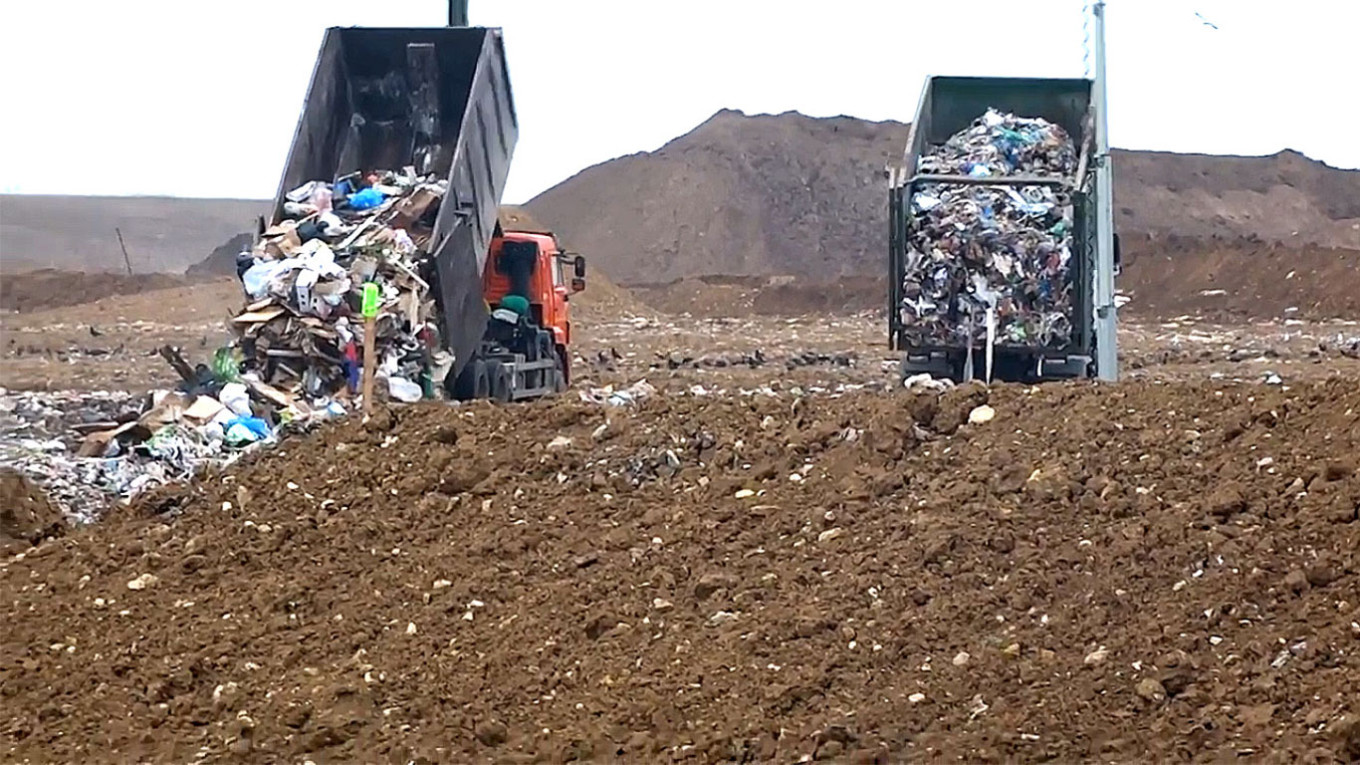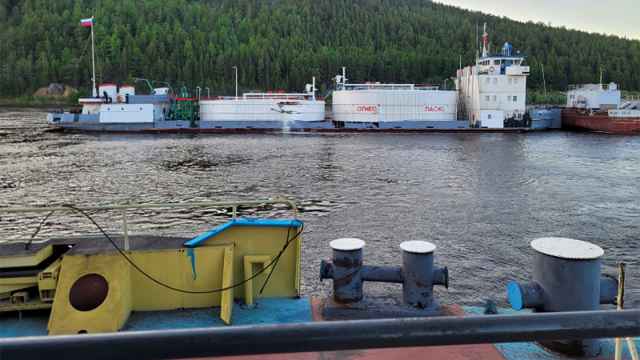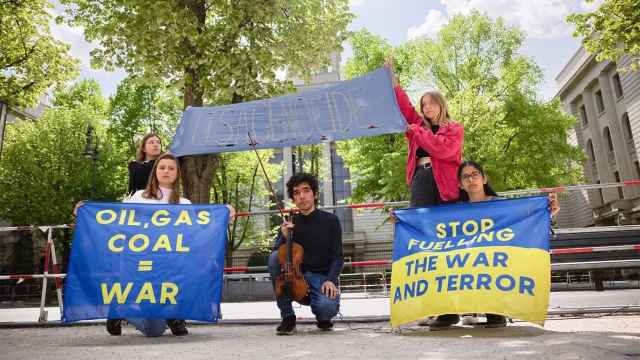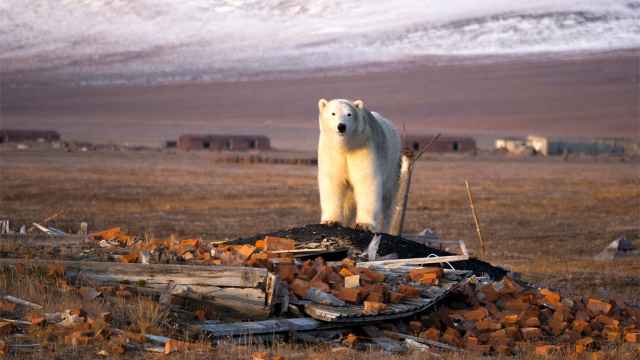"You sleep at night and suddenly wake up, just out of the blue. And realize that breathing is difficult, and the house smells as if it’s full of household gas."
This is one of the unsettling memories shared by a Moscow region resident who identified herself as Anna.
Living just 3 kilometers from Yug (South), a waste processing complex near the village of Myachkovo, Anna's quality of life has dramatically declined since the facility’s October 2019 opening.
"We first noticed the smells of landfill gas in the spring of 2020. There was one instance when I even felt nauseous,” Anna told The Moscow Times. “I've never had any allergies in my life. But when I was exposed to a strong emission, I broke out in hives all over my body."
Among the other conditions encountered by Anna and other residents while living near Yug, one of the country's largest waste management sites, have been watery eyes, a metallic taste in their mouths, headaches, stomach pains and even vomiting.
In a show of public defiance to official policy that has become less common in recent years, Anna and others in her community are opposing the harmful impacts of the waste complex near their homes.
Yug is just one of several facilities built in the region surrounding Russia’s capital in recent years to address the mounting waste problem in this city of 12 million people.
Processing around 300,000 tons of garbage per year — roughly 6% of Moscow’s annual waste — Yug’s builder RT-Invest as well as regional officials boast that it is an environmentally friendly alternative to the shuttered Volovichi landfill, a major waste dump that troubled residents of the Kolomensky district, where Anna lives, for several years.
“There will definitely be no more odors or problems with the launch of such modern complexes for both local residents and visitors,” Moscow region Governor Andrei Vorobyov said on a visit to Yug in 2019.
However, the reality fell short of the governor’s expectations.
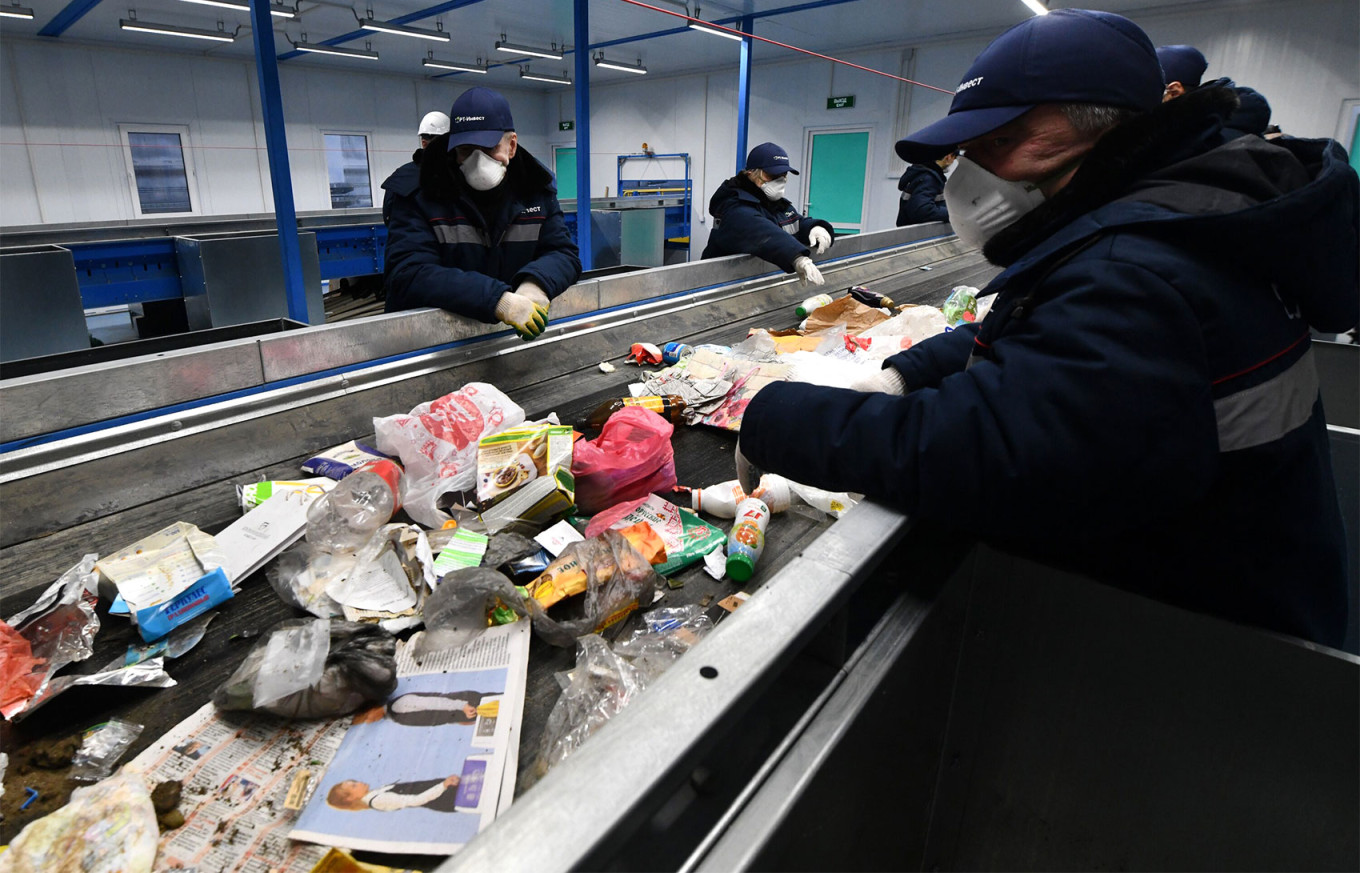
Unwilling to tolerate issues ranging from suffocating odors to dark water discharges into a local river, Anna and the other local activists have resorted to legal actions, holding multiple meetings with various government bodies and staging rallies when the authorities still agreed to protests.
The residents’ concerns weren't unfounded: regional monitoring body Mosoblecomonitoring confirmed breaches of air pollution limits near Yug by several substances.
For hydrogen sulfide alone, a toxic gas resulting from the decay of proteins, maximum allowed concentrations were exceeded 476 times between September and December 2022 and 611 times in the first half of 2023, according to an official document obtained by The Moscow Times.
The odor issues might stem from the fact that garbage is still being dumped as it would in a landfill in the vicinity of Yug, as videos posted by locals and public reviews of the facility suggest.
Still, Yug representatives are not in a rush to acknowledge and fix the problem, Anna said.
“All our roundtable discussions lead to Yug [representatives] claiming they are not responsible for the problem,” Anna said. “They say ‘So what if the discharged water is black? When we measure, our water is clear. And besides, the odor is not coming from us’.”
The grassroots resistance in the Kolomensky district is just one episode in the country's ongoing systematic waste management crisis which is acknowledged at even the highest levels.
In 2019, Russia's presidential human rights council noted the absence of consistent measures to curb waste generation, opaque waste management schemes and escalating social tensions stemming from the crisis. Russia's Audit Chamber in 2020 characterized the situation with official landfills in the majority of Russian regions as “close to critical,” with most fast approaching their capacity.
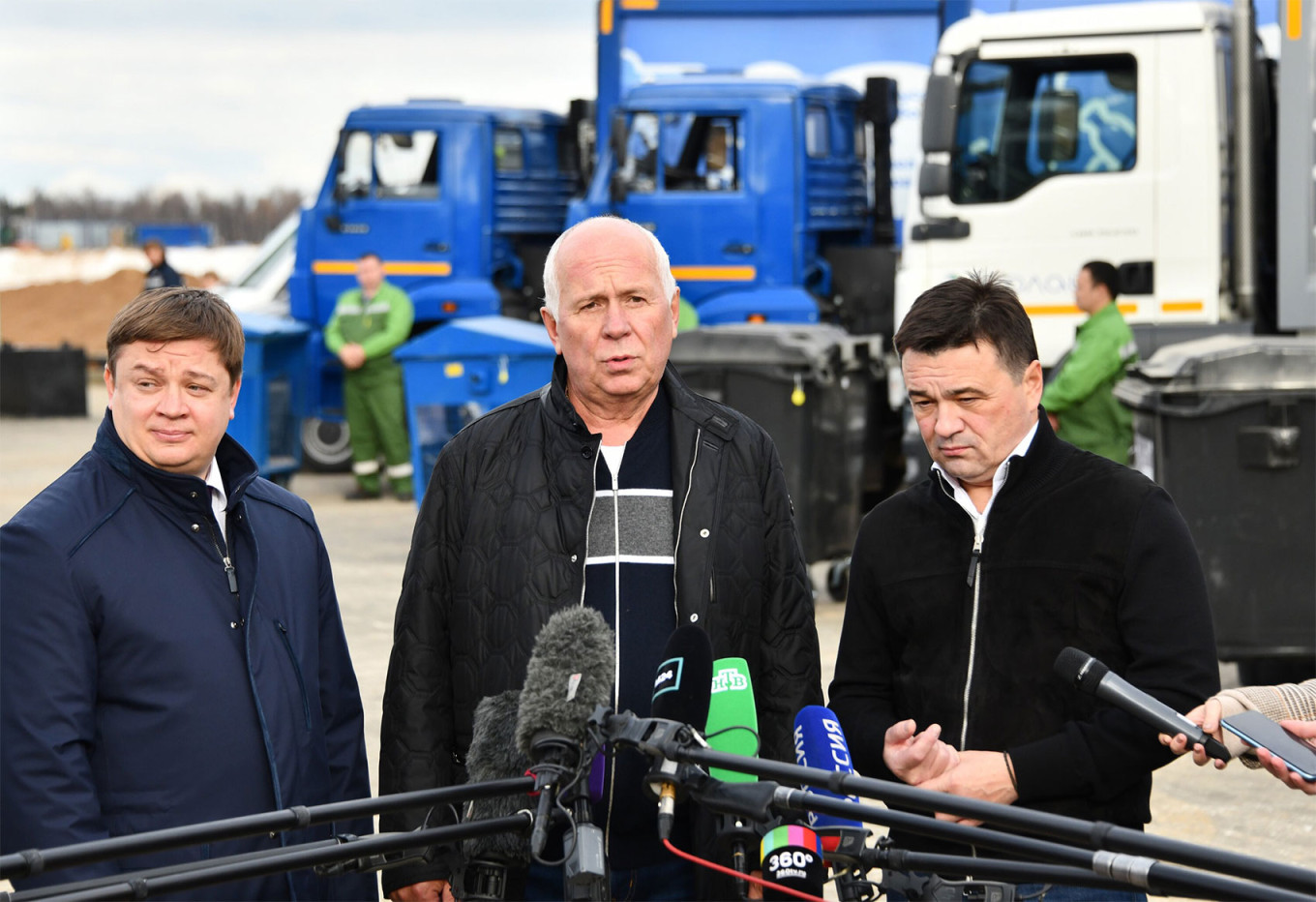
Recent estimates suggest Russia's legal landfills span around 4 million hectares — roughly the size of The Netherlands — further expanding every year by the area of a few big cities. But besides official ones, there exist around 12,500 unauthorized waste dumps in Russia, the government data suggests.
Unlike landfills, facilities like Yug attempt to extract raw materials such as aluminum and plastic from mixed waste for recycling, but still fail to do so on a significant scale. This is due to the lack of separation at the collection stage in urban courtyards, according to an independent expert in the field who chose to stay anonymous due to safety concerns.
“I refer to the mixed-waste stream that goes through such waste processing complexes as ‘borscht with batteries’,” the expert told The Moscow Times. “It's very difficult to extract a high percentage of useful components from this mess.”
The expert also pointed to the national program aiming to reduce by half the amount of garbage going to landfills by 2030. Because the program does not specify particular ways of achieving that goal, Russian regions could resort to controversial methods such as waste incineration in order to fulfill the plan.
“Legislative amendments adopted in 2019 state that incineration is also considered a form of waste processing. However, in reality, this is not the case, as it entails the destruction of non-renewable resources. It's a one-way path for waste,” the expert said.
The expert believes the solution lies in developing proper recycling schemes — but even more importantly, in shifting the focus to reducing waste generation altogether.
Yet there is a lack of financial incentives for citizens and waste management companies to produce and process less waste.
“Officials fail to grasp effective measures for waste reduction. This issue is not given the appropriate attention, unlike in the European Union, where they have long realized that it is the right approach,” the expert said. “The best waste is the waste that was never produced.”
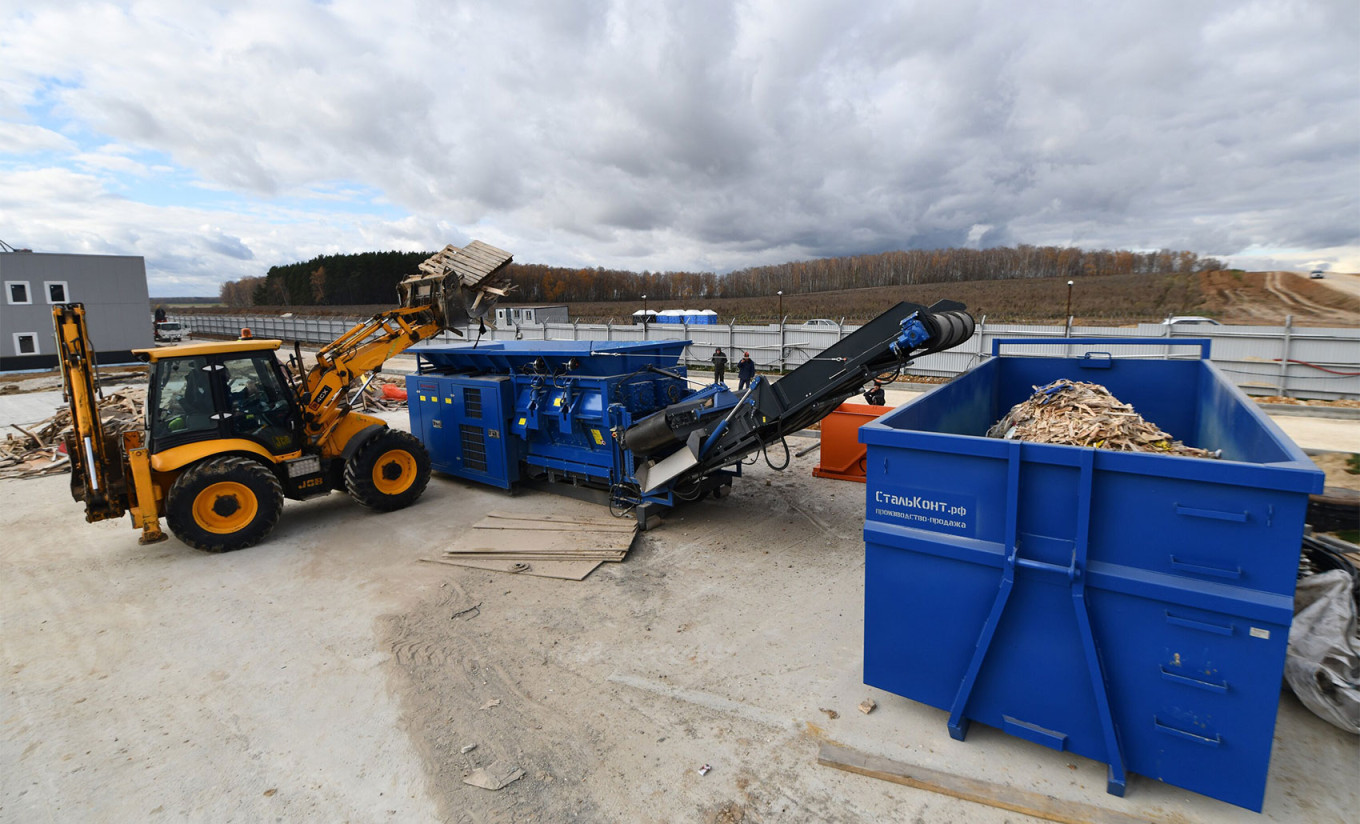
While such a vision of waste management in Russia is yet to materialize, residents living near Yug continue to report “stink” issues in local Telegram chats. This month, the community appealed to Governor Vorobyov in a video this month featuring real children going outside in gas masks and writing letters to Ded Moroz (the Russian equivalent of Santa Claus) with the wish that their neighborhood wouldn’t smell like a dump.
Despite these complaints, the governor recently assured President Vladimir Putin that the Moscow region's landfill situation was free of problems.
“Not only did we close the landfills, but we also rehabilitated them through a federal program. Now it's an entirely different reality,” Vorobyov said.
However, the residents of the Kolomensky district are not giving up their fight until the Yug facility stops polluting the environment and poisoning people — or, if it is unable to do so, shuts down, Anna said.
Recalling that her parents had specifically chosen her current suburban dwelling as an environmentally healthy place to live away from Moscow, Anna still imagines her ideal world.
“I have two children and a garden. I want to live a peaceful life, plant my potatoes and onions, raise my children, and not deal with the garbage dumps.”
A Message from The Moscow Times:
Dear readers,
We are facing unprecedented challenges. Russia's Prosecutor General's Office has designated The Moscow Times as an "undesirable" organization, criminalizing our work and putting our staff at risk of prosecution. This follows our earlier unjust labeling as a "foreign agent."
These actions are direct attempts to silence independent journalism in Russia. The authorities claim our work "discredits the decisions of the Russian leadership." We see things differently: we strive to provide accurate, unbiased reporting on Russia.
We, the journalists of The Moscow Times, refuse to be silenced. But to continue our work, we need your help.
Your support, no matter how small, makes a world of difference. If you can, please support us monthly starting from just $2. It's quick to set up, and every contribution makes a significant impact.
By supporting The Moscow Times, you're defending open, independent journalism in the face of repression. Thank you for standing with us.
Remind me later.


